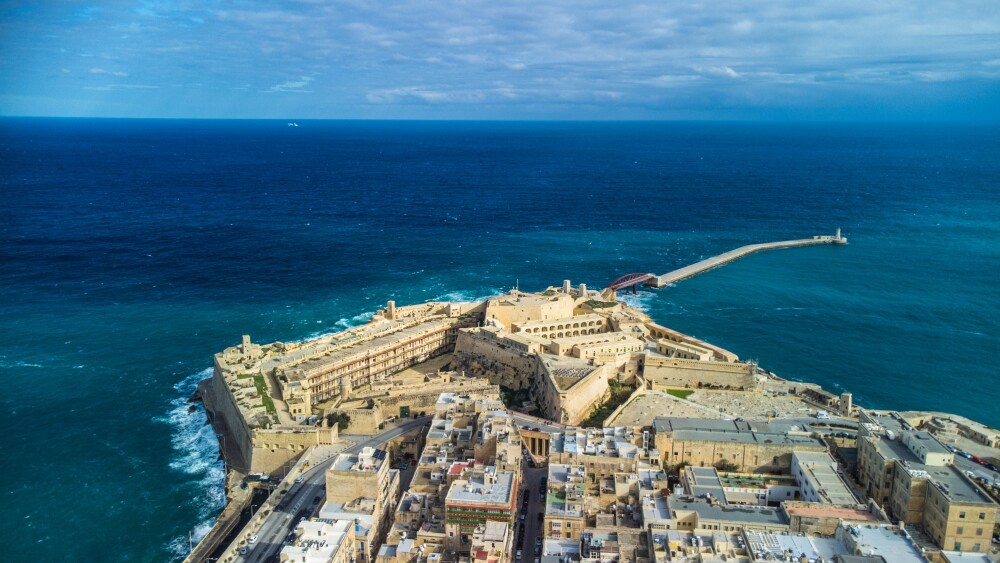Malta’s recent public rebuke of Tripoli’s unilateral maritime moves is more than a small-state complaint: it is an inflection point that exposes fault lines in eastern Mediterranean geopolitics, energy markets, and international law. What began as an obscure cartographic dispute over median lines and continental shelves has become a prism through which to view Turkey’s expanding regional footprint, Libya’s fractured diplomacy, and Brussels’ dilemma about enforcing norms without escalating conflict.
The proximate trigger for the diplomatic flare-up is the deepening energy partnership between Tripoli’s institutions and Turkish companies — a cooperation that has accelerated in 2025.
At the heart of Malta’s objection is a technical but consequential claim: that Libya’s submission of revised maritime coordinates shifts the “median line” north and encroaches on Malta’s continental shelf and island rights. For a tiny island state, the principle is not academic. EEZ delimitations determine control over exploration rights, seabed concessions, and the legal levers that attract or repel energy firms. In an era when a single exploration contract can re-order investment flows, small cartographic tweaks carry outsize economic significance.
The proximate trigger for the diplomatic flare-up is the deepening energy partnership between Tripoli’s institutions and Turkish companies — a cooperation that has accelerated in 2025 as Ankara seeks to extend its maritime reach and secure hydrocarbon access. Turkish involvement gives the Libyan maps immediate operational teeth: they are not just aspirational claims but potential lines that Ankara-affiliated firms and vessels could seek to exploit. That dynamic raises the stakes for EU capitals already nervous about unilateral maritime engineering.
Equally important is the legal shadow cast by earlier Turkey–Libya memoranda. The 2019 accord, long criticized by Greece and others for running afoul of established delimitation norms, set a precedent for bilateral mapping that sidelines third-party rights. European institutions and parliaments have repeatedly flagged the legal shortcomings of that approach; the current controversy is therefore as much about precedent as it is about parcels of seabed. If memoranda can be used to reassign maritime space without multilateral delimitation, the postwar UNCLOS-based order risks incremental hollowing-out.
By internationalizing the dispute, Valletta raises the political and legal transaction costs for Tripoli and Ankara.
Malta’s tactical posture also reflects political calculus. Valletta’s diplomatic notes and its willingness to keep third parties — Italy, Tunisia, or EU mechanisms — on the table signal a preference for multilateralization: converting bilateral, ad hoc deals into negotiated settlements. For Malta this is both defensive and strategic. By internationalizing the dispute, Valletta raises the political and legal transaction costs for Tripoli and Ankara, and it draws the dispute into forums where small-state rights are harder to override by force or raw influence. Recent visits and talks between Maltese and Libyan officials underscore that Valletta is attempting damage control while preserving leverage.
The EU’s reaction further complicates the picture. Brussels has reiterated that maritime delimitation must follow international law and expressed concern about unilateral measures that impinge on member-state interests. But the Union faces a classic enforcement gap: normative authority without a reliable coercive toolkit in the eastern Mediterranean. The dilemma is strategic: defend legal norms visibly and risk a diplomatic rupture with Ankara and a strain on migration cooperation, or prioritize transactional stability and allow contested maritime deals to stand on shaky legal ground. Either choice reshapes alliance politics in the region.
The outcome will matter not just for hydrocarbon prospects off Malta’s shores, but for the health of legal norms and the balance of influence across the eastern Mediterranean.
Looking ahead, the most plausible pathways are pragmatic, not apocalyptic. First, bilateral negotiations between Libya and Malta — ideally broadened to include nearby coastal states — could produce a compartmentalized delimitation that quarantines contentious areas. Second, legal recourse (including eventual referral to international courts or arbitration) remains on the table, especially if negotiations stall. Third, energy companies themselves might force a political pause: major Western firms typically avoid investing in legally fraught blocks, which could slow exploitative activity and buy time for diplomacy. Each scenario imposes costs and timelines that will test Tripoli’s political coherence and Ankara’s willingness to back down.
Malta’s move is therefore instructive rather than exceptional. It crystallizes enduring questions — who gets to draw maritime maps, how small states defend rights against larger patrons, and whether multilateral law can keep pace with opportunistic, state-level realpolitik. The outcome will matter not just for hydrocarbon prospects off Malta’s shores, but for the health of legal norms and the balance of influence across the eastern Mediterranean.
Published originally on September 24, 2025.






